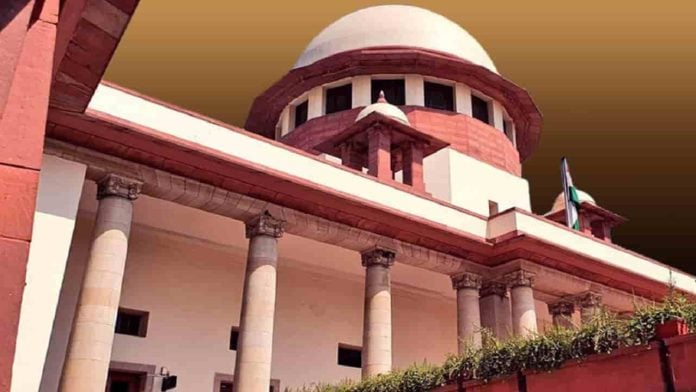The Supreme Court on Monday upheld the constitutional validity of self-respect marriages by overruling the Madras High Court verdict, which ruled that marriages performed in the offices of Advocates were not valid as per the Hindu Marriage Act, 1955.
The Bench of Justice S. Ravindra Bhat and Justice Aravind Kumar, while considering the special leave petition, upheld the fundamental right of a person to choose a life partner.
The case pertained to the self-marriage system as per Section 7A, which was inserted in the Hindu Marriage Act by a Tamil Nadu Amendment.
As per Section 7A of the Act, two Hindus can marry without following rituals or without solemnisation by a priest by declaring marriage in the presence of their friends or relatives or other persons.
A Division Bench of the Madras High Court, while hearing the case S. Balakrishnan Pandiyan vs Inspector of Police in 2014, ruled that marriages performed by the Advocates were not valid and that Suyamariyathai marriage (self-respect marriage) could not be solemnised in secrecy.
On the basis of this verdict, the High Court of Madras in case Ilavarsan vs The Superintendent of Police and Others on May 5, 2023, refused to rely upon a marriage certificate issued by an advocate and dismissed a habeas corpus petition filed by a man, who alleged that his partner was under illegal detention of her parents.
The High Court further directed that the Bar Council should initiate disciplinary action against the Advocates who issue such ‘fake’ marriage certificates. Aggrieved by this judgement, the petitioner approached the Supreme Court.
The Apex Court today disagreed with the view expressed in the Balakrishnan Pandiyan case.
The Bench noted at the outset that Section 7A was upheld by the top court of the country in Nagalingam vs Shivgami (2001) 7 SCC 487. It further observed that the view in Pandiyan was based on an assumption that every marriage required a public solemnisation or declaration.
It observed that the couples intending to marry may refrain from making a public declaration due to various reasons, such as familial opposition or fear for their safety. In such cases, enforcing a public declaration could put lives at risk and potentially result in forced separation.
Terming the view expressed by the Madras High Court in Balakrishnan Pandiyan as erroneous, the top court of the country said the same were premised on the assumption that each marriage required a public solemnisation or declaration.
It said such a view was rather simplistic because often due to parental pressure, couples intending to enter into matrimony may not enter into it for the reason of such opposition, hold or give such public declaration, as doing so would imperil their lives and could very likely result to threat of bodily integrity, or forcible or coerced separation.
Advocate-on-Record A Velan, assisted by Advocate Mrityunjay Pathak, appeared for the petitioner.
(Case title: Ilvarasan vs Superintendent of Police)


